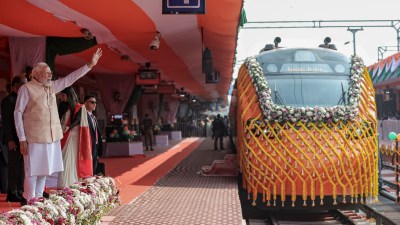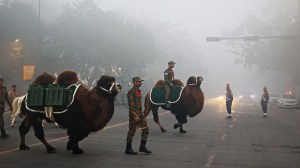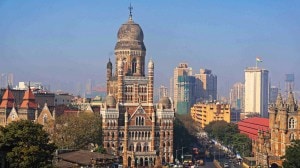Stop for help
The driving force behind Keralas Santhi Medical Information Centre,which helps you choose the right doctor and course of treatment,is Uma Preman. Her story....
While flitting in and out of hospitals from 1989 to 1997,when her husband Thaikkadu Preman was being treated for tuberculosis,Uma Preman saw many others like her,lost in the labyrinthine world of hospitals and doctors.
As Preman slowly slipped into death at a hospital in Thiruvananthapuram in 1997,Uma stood by helplessly. She,along with Preman,had made the rounds of several super-specialty hospitals in the country,trying to get to the bottom of his ailment. But it was only in 1996 that he was diagnosed with multi-drug resistance tuberculosis. By then,it was too late and Preman died a year later. It was then that Uma decided that she wouldnt let others suffer the same fate as hers. It was this determination that resulted in the Santhi Medical Information Centre SMIC at Keralas temple town of Guruvayoor. SMIC is a one-stop centre that provides information on treatment,hospitals,doctors and cost of treatment.
When Uma married Preman,a businessman,in 1989 at the age of 19,she knew he had TB. For the next seven years,the couple made the rounds of several hospitals. In 1997,Preman died in a Thiruvananthapuram hospital at the age of 42,for want of timely diagnosis.
But in the days that she spent in the hospital,Uma met many others who suffered the same plight. There were many people like my husband who had failed to reach the right doctor at the right time. Some others were in the wrong place. They knew nothing about their entitlements and corporate schemes for the needy.
Fifteen days after Premans death,Uma boarded a flight to Delhi,where she went to all major hospitals and collected information on doctors,medical departments,fee and other information relevant for patients. The details were couriered to Guruvayoor,where a data entry operator documented the data. From Delhi,she moved to other cities. Uma,who had left Kerala in June 1997,returned home in August after completing her mission. The same month,she opened SMIC from a two-storied house.
SMIC has 60 doctors from across the country on its panel. When patients approach the centre for advice,their medical history is mailed to the panel and the doctors advise the patients. On average,around 50 such queries reach SMIC every day.
Patients come to us for guidance after a frustrating exercise of looking for the right hospital and doctor. They are the victims of our medical system,which is still reluctant to share vital information with patients. Unnecessary treatment and medical bills can be avoided if the doctor-patient communication gap is filled, says Uma.
The SMIC does not charge any fee nor does it collect money from hospitals. Uma has got support from the Central government,charitable organisations and philanthropists in Kerala and the Gulf.
Uma,who had donated a kidney to an unknown youth in 1999,said her latest mission was to create awareness about organ transplants and medical insurance. The centre has facilitated nearly 600 transplants and about 20,500 heart surgeries. For the last eight years,Uma has been running two dialysis units,in Thrissur and Palakkad districts,for the under-privileged.
- 01
- 02
- 03
- 04
- 05































